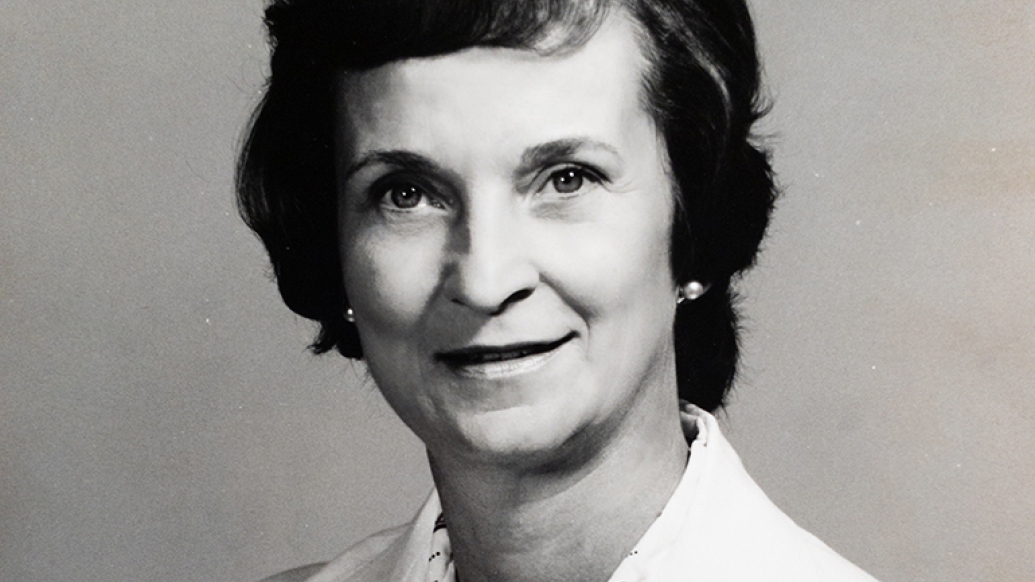
Carol Goodman Matheson (M.D. 1953, Residency 1957) died on January 31, 2020, at the age of 91. After working as a nurse's aide during WWII, she went to U-M Medical School and became one of the first residents in the Physical Medicine and Rehabilitation (PM&R) department. Later, she established the Physical Medicine Department at Poudre Valley Memorial Hospital in Fort Collins, Colorado, before moving to Washington, DC, in 1968, where she was assistant chief of PM&R at the Washington V.A. Hospital. She then became professor of PM&R and assistant director of the department at Georgetown University Hospital in 1970. She headed the first PM&R department at Ochsner Foundation Hospital in New Orleans, where she was on staff from 1976 until her retirement in 1986.
The following is an excerpt from some of her memories of the early days of PM&R at U-M.
Being in the class of 1953 was an outstanding privilege and learning experience. Many of the students were veterans of World War II. [There were] 12 women in our class (a record number for that era).
The medical atmosphere in the '50s contributed to my decision [to do a PM&R residency]. Wounded war veterans were still being treated in hospitals. The poliomyelitis epidemic was at its height, and treatment personnel were greatly needed.
The simplest description of our training is "hands-on." We were taught to evaluate and diagnose not only using our book knowledge, but also by observation, palpitation, motion, measurement, and intuition.
Renovation and improvements of the department occurred soon after I completed my residency. The original unit was demolished along with the rest of "Old Main."
Some snippets of memory come to mind in recalling those experiences of more than 50 years ago:
- The respirator center on the top floor of the hospital with rows of "iron lungs" and other respirators, in the morning was abuzz with therapists and doctors on rounds; in the evening, quiet except for the sound of the Mouseketeers on the one television (a program not to be missed by patients or staff); at night in the dim light, the sighing of the machines in a regular cadence keeping life flowing.
- The memorable hands-on experience of donning masks and gowns and actually treating polio patients in the acute stage of their disease. Their tolerance and courage through that early painful phase of treatment with Kenny packs and gentle exercise was inspiring to us all.
- The exciting announcement of the successful results of the Salk vaccine trials which I witnessed on April 12, 1955.
- The strength, both physically and emotionally, of the physical therapists in handling challenges, such as gait-training sessions for paraplegics in cumbersome braces.
The camaraderie and shared learning among members of the rehabilitation staff, including prosthetists, orthotists, social workers, and many others.





